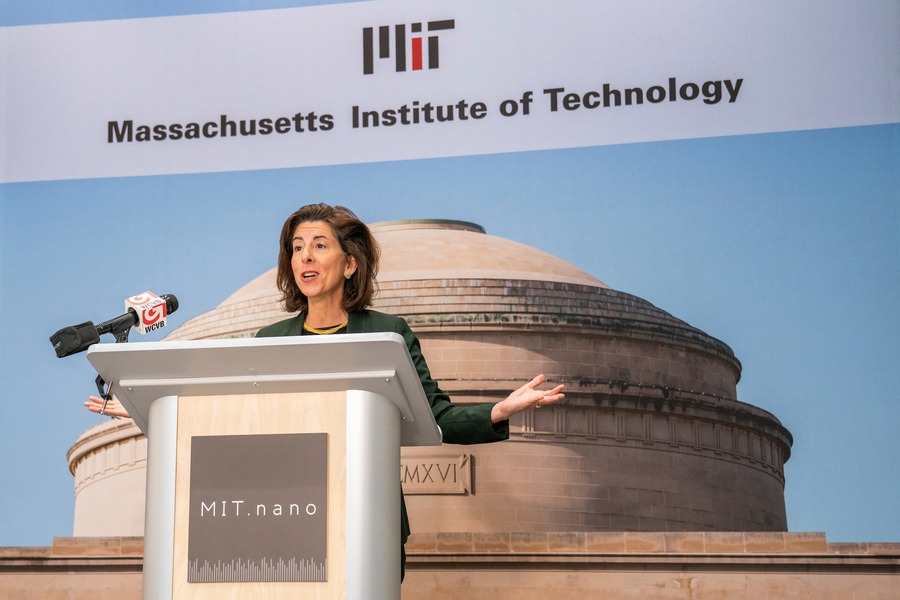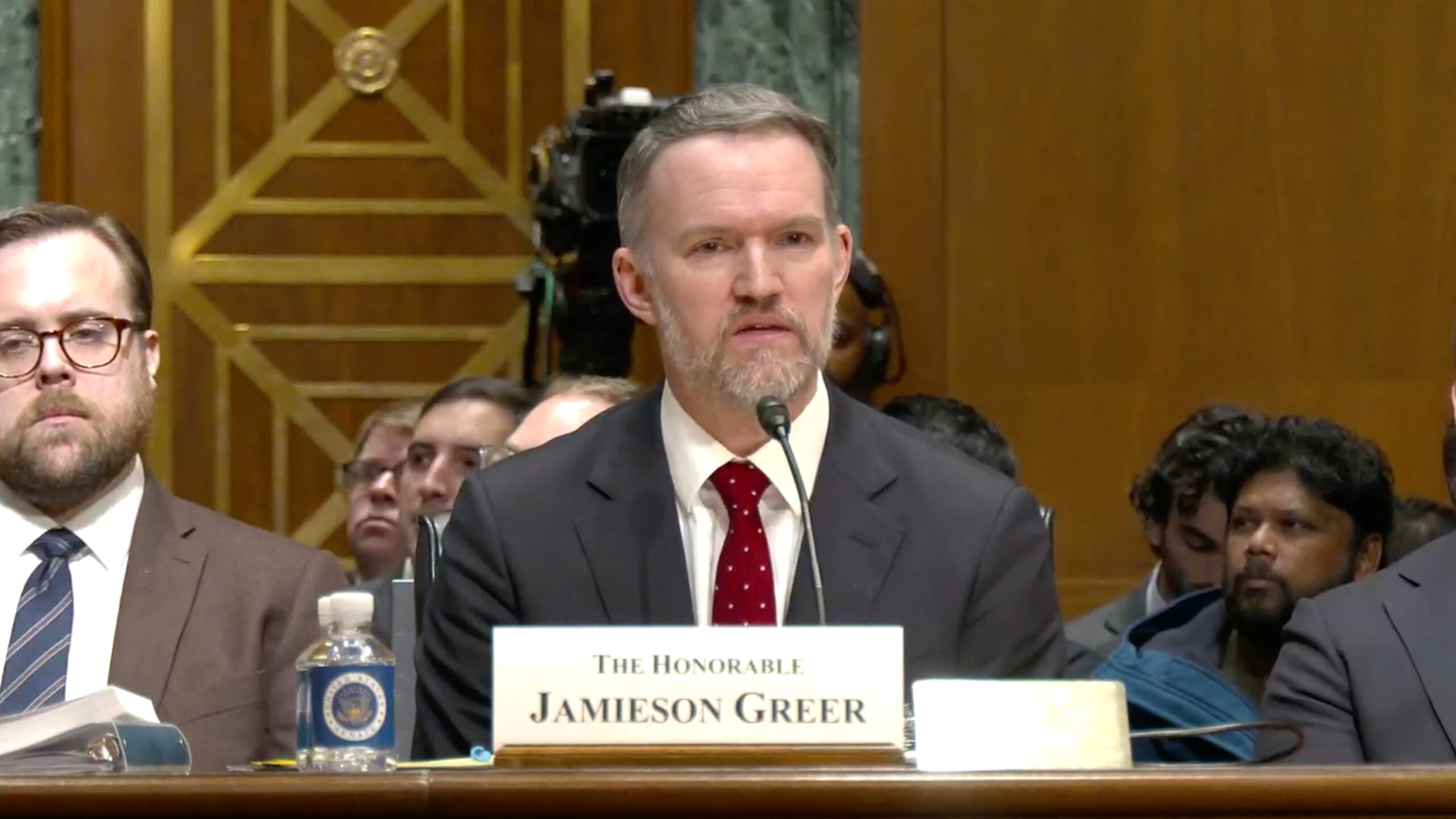A little-noticed speech by Commerce Secretary Gina Raimondo last week was a rousing endorsement of industrial strategy by a senior Biden administration official as the way forward for the U.S. economy. Raimondo minced no words as she called for the private sector and America’s educational institutions to join the fight to position the U.S. as the leader in manufacturing as well as research in critical technologies for the 21st century.
The speech was notable in many ways, including Raimondo’s straightforward assertion that manufacturing is critical to the U.S. economy and that over-dependence on China played a crucial role in shortages in U.S. protective gear during the COVID pandemic.
As a former governor of the rustbelt state of Rhode Island, Raimondo has experience dealing with industrial decline. Last week, she told the audience at Massachusetts Institute of Technology:
“Our economic competitiveness and national security depend on a bold domestic investment agenda in strategic and critical sectors.”
She praised the administration’s two signature achievements, the CHIPS and Science Act and the Inflation Reduction Act (IRA) for putting $1 trillion of investment into the critical sectors of semiconductors, electric vehicles (EVs), and critical minerals.
“It is what President Biden has termed a `modern industrial strategy’—an approach rooted deeply in America’s history—from Alexander Hamilton’s Report on Manufactures to President Lincoln’s intercontinental railroad—but calibrated to the new, forward-looking challenges and opportunities of the 21st century.”
Hamilton’s 1791 report was a visionary document advocating tariffs and government investment to kick-start a U.S. manufacturing industry. It has been widely praised by many Republican political leaders. Broadway musical playwright Lin-Manuel Miranda even turned buttoned-down Hamilton into a figure of admiration for young rappers. Raimondo is finally bringing the Democratic Party into the camp of Hamilton supporters.
Raimondo was careful to include manufacturing along with research and development as keys to American economic success. Historically, political leaders in both parties have tended to praise R&D and shower it with subsidies, while giving large multinational corporations a free hand to move manufacturing overseas, increasing corporate profits while eliminating millions of good jobs at home. Raimondo said those days are over, with the administration committed to “revitalizing” U.S. domestic manufacturing.
“We will never let ourselves become dependent on one country for the goods we need to keep our people safe,” she said. “We have mounted a whole-of-government effort to identify the commodities and technologies where our inability to source process, or manufacture domestically could cause great damage to our security.”
Of course, it is still too early to declare Raimondo’s agenda a success. We have yet to see if the trillion dollars of investment will generate the targeted manufacturing growth. Further, Raimondo does not speak for the entire administration. Within the administration and the national Democratic Party there are powerful forces agitating for so-called “multilateralism” which is often a code-word for a return to allowing large corporations to find low-cost locations for production. The current dispute with the European Union over the IRA’s support for domestic production of EVs is a case in point. Some in the administration would like to water down our support for our EV industry in the name of a vague, undefined cooperation with “allies.”
So far, the Biden administration does seem to be holding firm on support for the U.S. EV industry in the IRA. Much more disappointing was President Biden’s decision last June to short-circuit the solar tariff case against Chinese solar panel makers using Southeast Asia to disguise the Chinese-made origin of their panels. Last week, the Commerce Department made Biden’s tariff suspension look weak and pathetic when it announced it found the Chinese solar companies have in fact used Southeast Asia to evade U.S. dumping penalties.
Still another example of the administration conceding to importers has been the watering down of U.S. steel tariffs, and the administration’s refusal so far to do anything to stop Mexico’s outrageous violation of the anti-surge steel agreements with steel conduit shipments to the U.S. five times greater than agreed levels.
“Outcompeting” China with Successful Industrial Strategies
Nevertheless, Raimondo’s blunt language on China is a refreshing change, and a world away from the rhetoric we have heard over the years from legions of trade and business officials from the Clinton and Obama administrations. Where those folks used to call for cooperation with China—Bill Clinton once claimed we would be able to produce in China without being forced to transfer technology to Chinese companies, perhaps the worst presidential forecast in history.
Gina Raimondo said frankly that the U.S. goal must be to “outcompete” a hostile China:
“China today poses a set of growing challenges to our national security. It is deploying its military in ways that undermine the security of our allies and partners and the free flow of global trade….we [must] move nimbly and quickly to harden our defenses against an array of emerging and ongoing practices that tilt the playing field against American workers and businesses and in some cases threaten our national security.”
The key to successful industrial strategies, as countries as diverse as China, South Korea, and Germany have demonstrated, is for the government to be clear about its objectives and to ensure that there are a significant number of domestic companies competing aggressively to win in those industries. The government must also not be afraid to allow some of those companies to fail. It was heartening to see Raimondo say that the government will work closely with the private sector, “including business, labor and universities, to work with us to ensure America’s long-term prosperity and security.”
An essential part of these strategies is standing up to the vested interests in the corporate and educational sector in the name of America’s national interest. The administration’s export controls on semiconductor equipment are costing U.S. semiconductor equipment companies hundreds of millions of dollars a year. That is unprecedented in the history of the modern U.S. technology industry. Even more amazing, large equipment companies like Applied Materials appear to have accepted these restrictions with a minimum of complaints, at least in public. But if we want to have a successful semiconductor manufacturing industry in this country, we need more than the CHIPS Act financial support. The government should take action to get thousands more graduate students into STEM and specifically semiconductor, material sciences, and software programs. Instead of blanket student loan forgiveness, why not offer a federally-supported free ride to any American that completes a graduate program in these vital subjects? That’s how Taiwan became the world leader in chip manufacturing. Education is the key and the harder the subject is, the more valuable is the prize at the end—for the student, for the company she goes to work for, and the nation as a whole.
Still, Gina Raimondo deserves credit for leading the charge on rebuilding the U.S. economy and supporting programs that may prove to mark the end of half a century of disastrous globalization policies that hollowed out our economy, deindustrialized the heartland and destroyed millions of good jobs.
If the Democrats want a candidate in 2024 that can broaden their appeal beyond the college towns and coastal intelligentsia, Gina Raimondo may turn out to be just the ticket.












